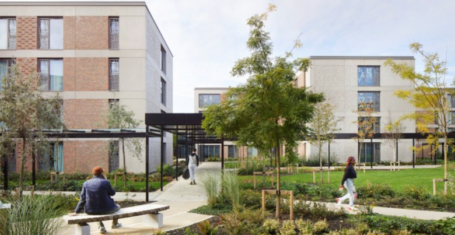
Breaking: Strike ballots at all Manchester unis fail as turnout is too low
Despite voting in favour, the turnout failed to reach the 50 per cent required for strike action
Fears that another round of academic strikes would rock British universities have been put at rest, despite the results of a ballot released today showing that 69 per cent of votes cast were in favour of strike action.
The Trade Union Act, which came into force last year, dictates that ballots must achieve a turnout of 50 per cent of eligible union members in order to be valid. Only seven university branches achieved this turnout, out of 147 taking part.
One branch of the UCU stated that despite falling short of the 50 per cent turnout now required by law, the turnout was the highest ever for a UCU pay ballot within higher education.
Students at 61 universities, including the University of Manchester, faced massive disruption when academic staff went on strike earlier this year over proposed changes to their pension scheme.
This time around, staff at 247 colleges and universities were balloted in the row over pay. They included Manchester Metropolitan University, the University of Salford, and the Royal Northern College of Music.
The proposed strike action was in support of the joint pay claim made by the UCU and four other higher education trade unions, which includes a 7.5 per cent, or £1,500, increase in pay – whichever is greater – to catch up on the massive 21 per cent cut in real pay experienced since 2010. It also included action to close the Gender Pay Gap by 2020, action on casual and precarious contracts, and recognition of excessive workloads and stress.
The only Manchester institution hit by the strikes back in February and March was the University of Manchester, which saved over £1 million withholding pay from the staff involved.
The impact of strike action varies with subject area, with nearly all teaching staff in some departments holding union membership. During the last round of strikes, some students faced a whole month with very little to no teaching.
In Manchester, students protested along Oxford Road and refused to pay the final instalment of their tuition fees in pursuit of compensation.
The reviews and ratings sections were removed from the University of Manchester Facebook page after student complaints caused its rating to drop to the second-lowest of any Russell Group university.
The full ballot results from each Manchester university were:
The University of Manchester: 74 per cent yes, 26 per cent no, 43 per cent turnout
Manchester Metropolitan University: 73 per cent yes, 27 per cent no, 40 per cent turnout
The University of Salford: 64 per cent yes, 36 per cent no, 35 per cent turnout
Royal Northern College Music: 71 per cent yes, 29 per cent no, 28 per cent turnout

Students formed the 'Take Action UoM' protest group in response to the handling of the strikes back in March
One academic said that the result "demonstrates the true repressive power of the 2016 Trade Union Act."
Ahead of the ballot, the UCU’s Manchester branch advised its members that they “cannot expect any generosity or sympathy from the University’s (very well paid) Senior Leadership Team.” This was a response to a Staffnet news article that presented a two per cent pay offer as “above inflation,” branded an “outrageous claim” by the Mancunian UCU branch.
Nationally, the UCU claim that the average gender pay gap was nearly £6,000 in 2016/17. They also say that the percentage of expenditure spent on staff is falling whilst operating surpluses have risen over 176 per cent.
Over 51,000 teaching staff are employed on hourly contracts, with over 12,500 teaching on zero-hour contracts. The UCU say it is "scandalous" that over 66 per cent of research staff are on fixed-term contracts, with around a third of these for less than 12 months.
The union also claim that within the education sector 50 per cent or more of working days lost to ill health are caused by stress, with higher education staff working an average of two unpaid days each week.
As the ballot opened, UCU general secretary Sally Hunt commented: “Staff working in our colleges and universities have had enough of seeing their wages held down while some principals and vice-chancellors’ pocket double digit pay rises and max out expense accounts.
"The pay offers do nothing to address years of decline in the value of our members' pay and have left us with no option but to ballot for strike action.”









































